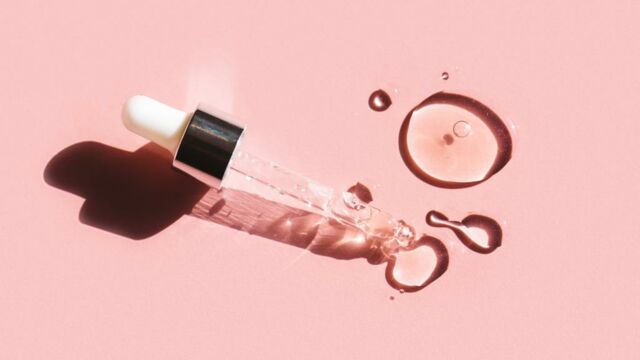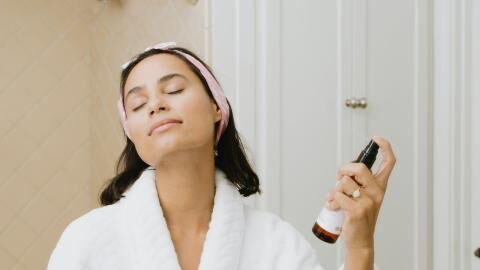In a world where popular ingredients like hyaluronic acid, peptides and shea butter exist, it can be easy to overlook squalane. But, if you’re looking to protect and repair your skin, then you won’t want to sleep on this ingredient.
Discover our latest podcast
What is squalene?
Squalene is a naturally occurring lipid in both animals and humans that helps support skin function by preventing water loss and protecting its barrier. So, it’s no surprise that this ingredient has been popping up in moisturising and anti-ageing products everywhere.
Squalene is also a significant component of sebum, making up to 10-13% of your skin’s oil production. However, much like collagen, the amount of squalene that your skin produces diminishes over time, leaving your skin dehydrated and prone to ageing.
Squalene vs Squalane
Squalene occurs in almost all living beings with skin; this means it can be found in humans, animals and, more surprisingly - plants.
As squalene with an ‘e’ is relatively unstable as a chemical and is subject to oxidisation, it goes through a hydrogenation process. The final product of this process then becomes squalane with an ‘a’, which won’t oxidise and lose its benefits when exposed to the air.
Squalene with an ‘e’ is traditionally derived from shark livers for both cosmetics and pharmaceuticals. Due to unsustainable and unethical practices, this type of ingredient sourcing has become frowned upon by consumers. Now, many companies have made moves to source their squalane from plants like olives, sugarcane and wheat germ.
How does squalane affect the skin?
Just like the naturally occurring squalene, squalane is hugely beneficial for healthy skin function and protection.
Squalane as an emollient
As an emollient, squalane works to lubricate the skin and lock in moisture, much like petroleum jelly, and any hydration provided in your skincare routine won’t be lost.
Not only does squalane help you get the most out of your hydrating products, but this emollient behaviour also helps protect the skin’s moisture barrier by reducing water loss. By maintaining a healthy moisture barrier, you can also be assured that your skin will suffer less sensitivity and inflammation as well as reduced instances of acne.
Squalane as an antioxidant
Squalane doesn’t just protect the skin from dehydration; it also helps fight off free radical damage caused by environmental stress. When we expose our skin to the sun, air pollution and even UV light, free radicals penetrate the skin, causing instances of premature ageing (this is just another reason why you should never forget your SPF!). By taking in squalane through our skincare routines, we can help reduce and repair the signs of free radical damage such as hyperpigmentation, wrinkles and irritation.
How to incorporate squalane into your skincare routine
Incorporating squalane into your skincare routine is simple; in fact, it may already be hiding in some of your anti-ageing and moisturising products. If you’re looking for an extra dose, squalane can be found in many plant-based oils for as little as £3-5.
In terms of layering, squalane can be added to your moisturiser after any water-based toners and serums before your SPF. Alternatively, this ingredient can also be used before retinol to cut down on potential irritation.
Some may find their squalane isn’t soaking into the skin and creates an oily film on the face. To avoid this, sandwich your squalane between thin layers of moisturiser. Moisturising creams often contain ingredients that help the product penetrate the skin. By using a cream before your squalane, the oil is much more likely to sneak into the skin behind it.
As squalene naturally occurs in our skin, reactions to squalane can be considered rare and safe for all skin types. However, if you find your skin is naturally oily and hydrated, then squalane may not be your product of choice.















